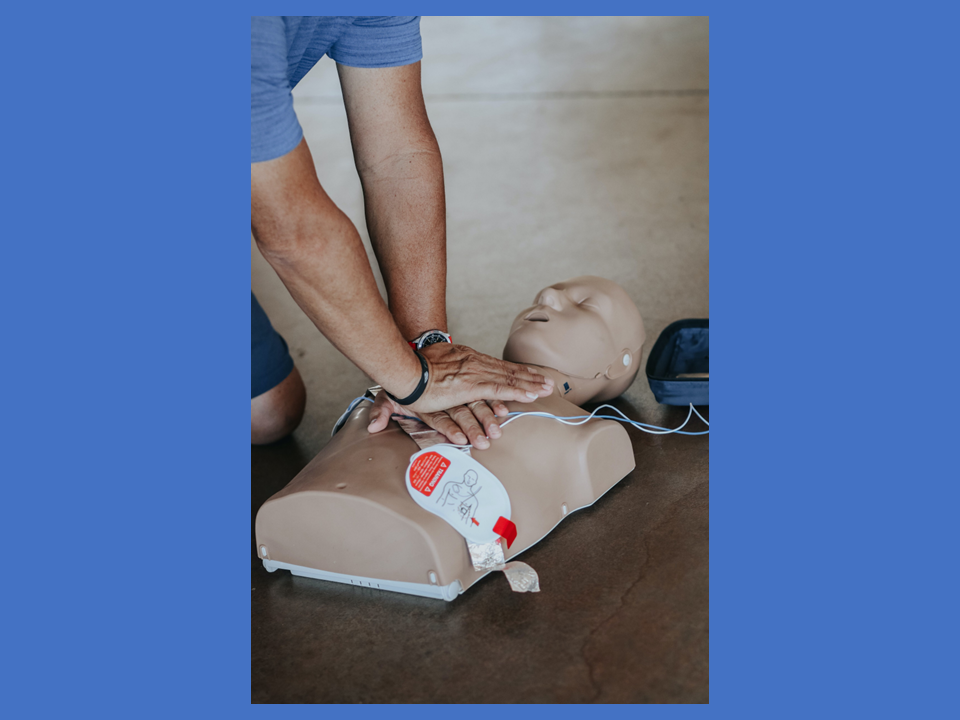The Knowledge and Practice of Cardiopulmonary Resuscitation (CPR) among Nursing Students
DOI:
https://doi.org/10.23917/bik.v17i1.3297Abstract
Cardiac arrest is the sudden cessation of a person’s cardiac activity and is often fatal if corrective life-saving interventions are not performed quickly. The American Heart Association advocates the need for high CPR competency among healthcare providers to increase the cardiac arrest survival rate. This study aimed to determine the knowledge and practice of nursing students on the acquisition and retention of CPR. A quantitative descriptive-correlation design was used, and a sample of 76 nursing students of Universiti Malaysia Sabah were recruited via a non-probability purposive technique. Data were collected using an online survey questionnaire that consists of 3 sections: Demographic, knowledge of CPR, and practice of CPR. They were analyzed using the correlation method. The results of this study are about the knowledge and practice of CPR. Nursing students' knowledge of the acquisition of CPR could be higher (39.36%), as is their practice (31.95%). The correlation coefficient between knowledge and practice is insignificant (rho = -0.073, p 0.531).In this study, both the knowledge and practice of CPR are independent.
Downloads
References
Andriyani, S. H., Setyorini, F. A., Dewi, E., & Pratiwi, A. (2019). Knowledge and their cardiopulmonary resuscitation (CPR) performance in critical and emergency care Units. IJNP (Indonesian Journal of Nursing Practices), 3(1), 52–57. https://journal.umy.ac.id/index.php/ijnp/article/view/6646 DOI: https://doi.org/10.18196/ijnp.3193
Ayuningtyas, P., Setiyarini, S., & Alim, S. (2023). Community Preparedness Education and Training Program in Facing Earthquake Disasters: literature review. Jurnal Berita Ilmu Keperawatan, 16(2), 240–251. https://doi.org/10.23917/bik.v16i2.2174 DOI: https://doi.org/10.23917/bik.v16i2.2174
Capili, B., & Anastasi, J. K. (2023). Improving the Validity of Causal Inferences in Observational Studies. The American Journal of Nursing, 123(1), 45–49. https://doi.org/10.1097/01.NAJ.0000911536.51764.47 DOI: https://doi.org/10.1097/01.NAJ.0000911536.51764.47
Cheng, A., Magid, D. J., Auerbach, M., Bhanji, F., Bigham, B. L., Blewer, A. L., Dainty, K. N., Diederich, E., Lin, Y., Leary, M., Mahgoub, M., Mancini, M. E., Navarro, K., & Donoghue, A. (2020). Part 6: Resuscitation Education Science: 2020 American Heart Association Guidelines for Cardiopulmonary Resuscitation and Emergency Cardiovascular Care. Circulation, 142(16_suppl_2), S551–S579. https://doi.org/10.1161/CIR.0000000000000903 DOI: https://doi.org/10.1161/CIR.0000000000000903
Donoghue, A., Navarro, K., Diederich, E., Auerbach, M., & Cheng, A. (2021). Deliberate practice and mastery learning in resuscitation education: A scoping review. Resuscitation Plus, 6, 100137. https://doi.org/https://doi.org/10.1016/j.resplu.2021.100137 DOI: https://doi.org/10.1016/j.resplu.2021.100137
du Plessis, N., Lamacraft, G., & Joubert, G. (2022). Training, knowledge, experience, and perceptions regarding cardiopulmonary resuscitation of doctors at an academic hospital in central South Africa. African Journal of Emergency Medicine : Revue Africaine de La Medecine d’urgence, 12(4), 344–351. https://doi.org/10.1016/j.afjem.2022.07.001 DOI: https://doi.org/10.1016/j.afjem.2022.07.001
Gino, B., Siraj, S., Peixoto, M., Benson, A., & Dubrowski, A. (2023). Comparing learning outcomes in cardiopulmonary resuscitation (CPR) and automated external defibrillator (AED) training for laypeople in face-to-face, online, and mixed training methods: an integrative literature review. Cureus, 15(5). https://assets.cureus.com/uploads/review_article/pdf/153415/20230602-13509-z1vftg.pdf DOI: https://doi.org/10.7759/cureus.38489
Ihunanya, O. M., Oke Michael, R. N., Babcock, B., Amere, L. T., & RPHN, Bns. (2020). Knowledge, attitude, and practice of cardiopulmonary resuscitation among Babcock University teaching hospital nurses in Ilishan-Remo, Ogun State, Nigeria. International Journal of Caring Sciences, 13(3), 1773–1782. http://www.internationaljournalofcaringsciences.org/docs/27_okwuikpo_original_13_3.pdf
Lactona, I. D., & Suryanto. (2021). Efficacy and Knowledge of Conducting Cpr through Online Learning during the Covid-19 Pandemic: A Literature Review. Journal of Public Health Research, 10(2), jphr.2021.2208. https://doi.org/10.4081/jphr.2021.2208 DOI: https://doi.org/10.4081/jphr.2021.2208
McNeish, D. (2018). Thanks coefficient alpha, we will take it from here. Psychological Methods, 23(3), 412–433. https://doi.org/10.1037/met0000144 DOI: https://doi.org/10.1037/met0000144
Moon, H., & Hyun, H. S. (2019). Nursing students’ knowledge, attitude, self-efficacy in blended learning of cardiopulmonary resuscitation: a randomized controlled trial. BMC Medical Education, 19(1), 414. https://doi.org/10.1186/s12909-019-1848-8 DOI: https://doi.org/10.1186/s12909-019-1848-8
Panchal, A. R., Bartos, J. A., Cabañas, J. G., Donnino, M. W., Drennan, I. R., Hirsch, K. G., Kudenchuk, P. J., Kurz, M. C., Lavonas, E. J., Morley, P. T., O’Neil, B. J., Peberdy, M. A., Rittenberger, J. C., Rodriguez, A. J., Sawyer, K. N., Berg, K. M., Arafeh, J., Benoit, J. L., Chase, M., … Magid, D. J. (2020). Part 3: Adult Basic and Advanced Life Support: 2020 American Heart Association Guidelines for Cardiopulmonary Resuscitation and Emergency Cardiovascular Care. Circulation, 142(16_suppl_2), S366–S468. https://doi.org/10.1161/CIR.0000000000000916 DOI: https://doi.org/10.1161/CIR.0000000000000916
Riggs, M., Franklin, R., & Saylany, L. (2019). Associations between cardiopulmonary resuscitation (CPR) knowledge, self-efficacy, training history and willingness to perform CPR and CPR psychomotor skills: A systematic review. Resuscitation, 138, 259–272. https://doi.org/https://doi.org/10.1016/j.resuscitation.2019.03.019 DOI: https://doi.org/10.1016/j.resuscitation.2019.03.019
Roel, S., & Bjørk, I. T. (2020). Comparing Nursing Student Competence in CPR before and after a Pedagogical Intervention. Nursing Research and Practice, 2020, 7459084. https://doi.org/10.1155/2020/7459084 DOI: https://doi.org/10.1155/2020/7459084
Tomas, N., & Kachekele, Z. A. (2023). Nurses’ Knowledge, Attitudes, and Practice of Cardiopulmonary Resuscitation at a Selected Training Hospital in Namibia: A Cross-Sectional Survey. SAGE Open Nursing, 9, 23779608231216810. https://doi.org/10.1177/23779608231216809 DOI: https://doi.org/10.1177/23779608231216809

Submitted
Accepted
Published
How to Cite
Issue
Section
License
Copyright (c) 2024 Su Chin Chung, CLARICE DUASIN, CAROLINE SATU JELEMIE, ROHANI MAMAT, MAZLINDA MUSA

This work is licensed under a Creative Commons Attribution 4.0 International License.


















